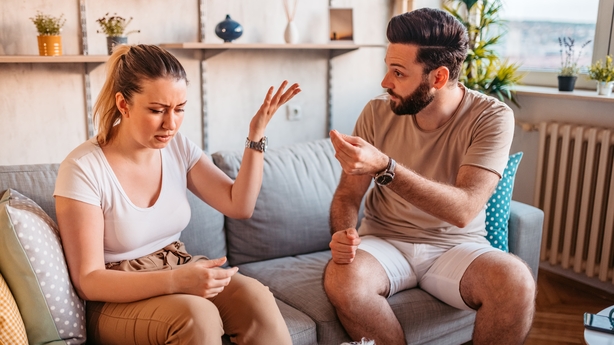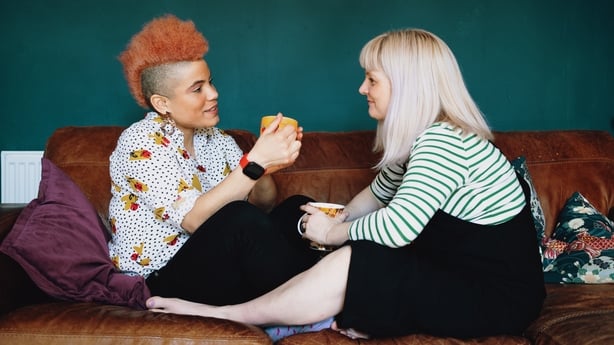Finding the time to check-in with your partner or spouse about your relationship can be tough to manage - especially if you've never done it before - and brings with it a bevy of assumptions about how it might go.
However, relationship therapist Rachel Cooke explains that they are a vital tool for understanding your relationship and working toward the kind of bond you want, and can be done gently and effectively in just a few minutes.
Cooke joined Jennifer Zamparelli on RTÉ 2FM to share her tips on doing relationship check-ins, and when to know when to check-out instead.

On the importance of having them, Cooke said that "they keep your relationship on track, they're very likely to do that if you do them well".
"It can help prevent unnecessary conflict and argument really by addressing issues as they kind of come up. It can really keep you focusing on creating and sustaining the kind of relationship you want, and also recognising if you really discover through that that you're not compatible, so you're not staying in a relationship that you're both not very happy with but you're not really going anywhere."
Based on what she sees with her clients, Cooke noted that "very, very few people even have the concept of doing a check-in".
"Some people find it cringe, some people just don't really know what to talk about. Some people are worried that they'll end up bringing up a load of things that they're unhappy with and then it'll lead to the end of the relationship."
Some, meanwhile, simply have never been taught how to do it.
Cooke suggested starting small, with many couples doing check-ins once a month, though others might want to do one once a week. There are also non-monogymous couples with multiple partners who may be having multiple check-ins a month, she said.
As for how long to spend on it, the first couple could take a while, she said, but once you get comfortable they can last as little as five ot 10 minutes.

Asked about some starter questions, Cooke shared her picks:
"Do you feel we're spending enough time together? How do you feel about the kind of physical affection and the sex in our relationship? Are our current boundaries working or what could we adjust in terms of time alone, time with family and friends?
"You can also ask things that are very much connected to your lives but aren't necessarily about your relationship, per se", she added, such as stressors that are coming up and how you can support each other's dreams and goals.
When it comes to who typically brings check-ins to the table, Cooke said that it's still often women who are picking up the mantle, saying they "have been socialised to do a lot more [for] the relational glue that can keep us together.
"So it might mean we're listening to podcasts, reading books, watching programmes that are more about relationships and how to keep them healthy.

"It doesn't mean men don't do it, but certainly I find it's often more the woman saying I'd really like to have these check-ins, things have changed and the man saying ah, I can't be bothered."
There are some things that a check-in won't fix, and it's possible that they can gradually reveal the ways in which two people aren't compatible, Cooke said. How do you know when it's time to leave?
"People will often say things like trust your gut and that is tricky especially when we've grown up with difficult dynamics in our own families. It can mean that somethings that are really toxic, unhealthy, destructive for us might feel so familiar because of how we grew up, that it might mean that we don't notice that we've replicated that."
It begins and ends with sitting and reflecting on your values in a relationship, she said.
For more advice on relationship check-ins, listen back to the full interview above.

